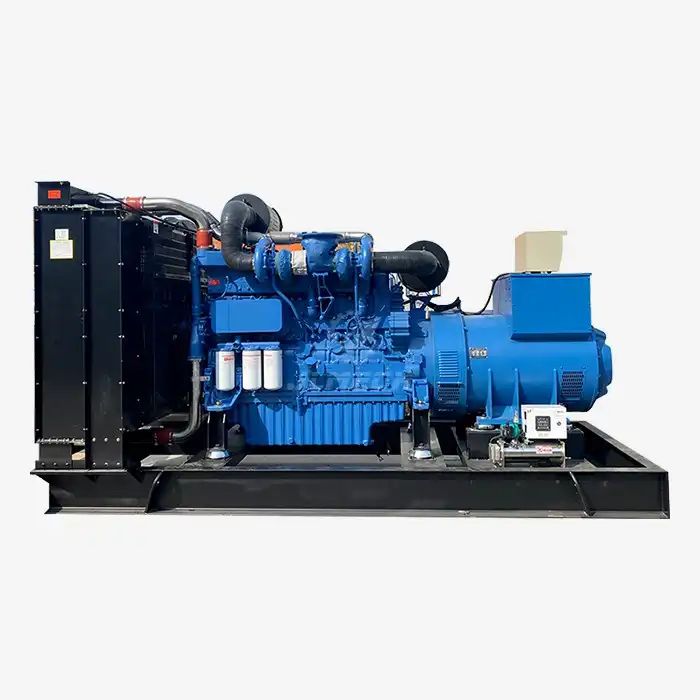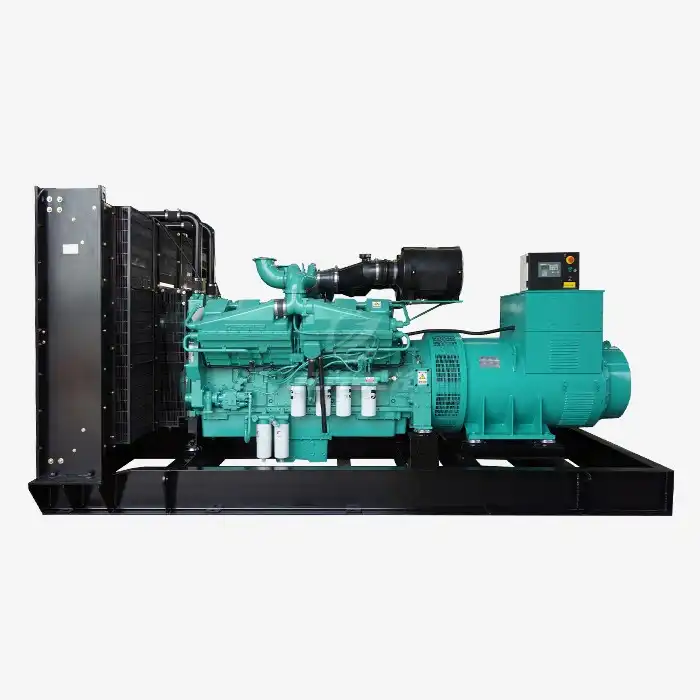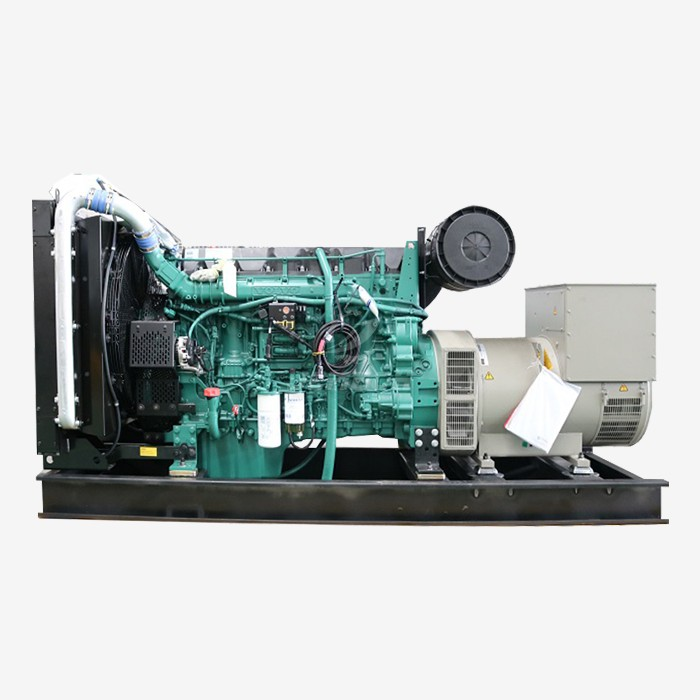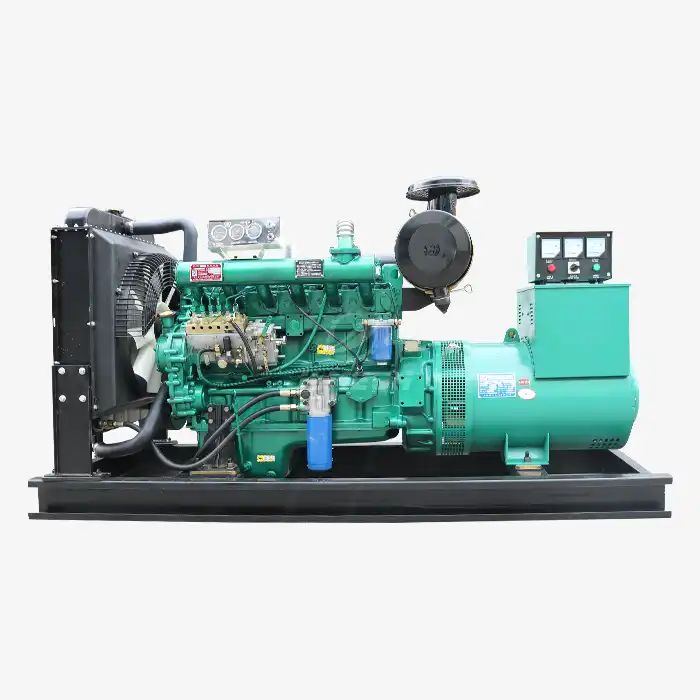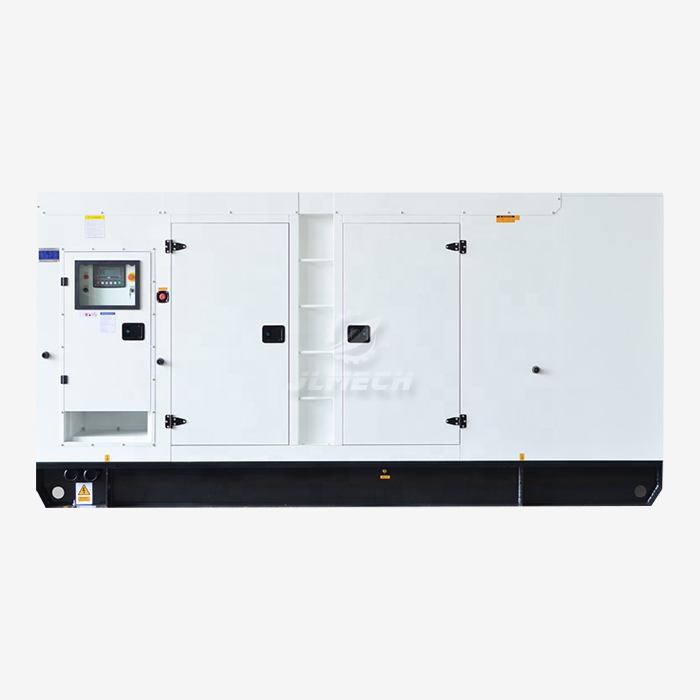What is the fuel consumption of 150kVA diesel generator?
Understanding the fuel consumption of a diesel generator is a critical concern for businesses and project managers aiming to optimize operational costs and ensure efficient power supply. A 150kva diesel generator is a popular choice for various industrial, commercial, and emergency applications, balancing power output with operational economy. However, its fuel efficiency is not a single fixed number but is influenced by several key factors. This article provides a comprehensive analysis of the fuel consumption for a 150kva diesel generator, exploring the variables at play and offering guidance on calculation and efficiency improvement.

Average Fuel Consumption
As a widely referenced benchmark, a 150kva diesel generator typically consumes approximately 39.4 liters or 31.5 kilograms of diesel per hour under full load conditions. This value is a useful starting point for estimations and preliminary budget calculations.
It is crucial to understand the relationship between kVA and kW. For a generator with a power factor of 0.8, a 150kVA unit is equivalent to 120kW of real electrical power. Fuel consumption is more directly tied to the real power (kW) load. Therefore, consumption rates are often expressed in relation to the generator's kilowatt output.
Factors Influencing Fuel Efficiency
The actual fuel consumption of any diesel generator can vary significantly from the standard benchmark. Primarily, it depends on two major factors:
Fuel Consumption Rate of the Engine: Different manufacturers and engine models have varying levels of efficiency, often expressed as Specific Fuel Consumption (SFC) in grams per kilowatt-hour (g/kWh). A lower SFC indicates a more fuel-efficient engine.
Electrical Load: This is the most dynamic factor. The generator's fuel usage is directly proportional to the applied load.
High Load (80-100%): Consumption will be close to or at the maximum rated value.
Medium Load (50-80%): Fuel usage decreases, and often, operation in this range can be highly efficient.
Low Load (Below 50%): While absolute fuel use is lower, the engine operates inefficiently, leading to a higher fuel cost per unit of electricity generated and potential long-term maintenance issues due to "wet stacking."
Other important considerations include the generator's maintenance status (clogged air filters, dirty injectors increase consumption), ambient conditions (high altitude and extreme temperatures affect combustion), and installation quality (poor ventilation can reduce efficiency).
Calculating Your Specific Fuel Cost
To move beyond estimates and calculate your precise fuel cost, you can use the manufacturer's SFC data. The process is straightforward:
Find the SFC: Check the generator's technical datasheet for the SFC value (e.g., 200-250 g/kWh is a common range).
Calculate Hourly Consumption: Use the formula:
Hourly Fuel (kg) = (SFC in g/kWh × Load in kW) ÷ 1000
Example: For a 120kW load and an SFC of 210 g/kWh: (210 × 120) / 1000 = 25.2 kg/hour.
Convert to Liters: Diesel weighs approximately 0.84 - 0.85 kg per liter.
Hourly Fuel (L) = Hourly Fuel (kg) ÷ 0.845
Example: 25.2 kg / 0.845 ≈ 29.8 liters per hour.
By applying this calculation with your actual average load, you can develop a much more accurate operating budget.
Tips for Reducing Fuel Consumption
Proactive management can significantly lower the fuel costs of your 150kva diesel generator. Implementing these best practices is key to long-term savings:
Right-Sizing Your Load: Avoid consistently running the generator at a very low load. Ideally, operate it between 50-80% of its capacity for optimal efficiency.
Adherence to a Strict Maintenance Schedule:
Regularly change oil, fuel, and air filters.
Inspect and clean fuel injectors to ensure proper atomization.
Keep the cooling system functioning optimally.
Using Quality Fuel: Always use clean, high-grade diesel. Contaminated or poor-quality fuel leads to incomplete combustion and higher consumption.
Investing in an Advanced Control System: Modern controllers can optimize engine performance and provide real-time data on fuel usage, helping to identify inefficiencies quickly.
Conclusion
The fuel consumption of a 150kva diesel generator is a flexible figure, primarily dictated by the specific engine model and the electrical load it serves. While an average consumption of around 39 liters per hour at full load provides a useful benchmark, understanding the underlying factors empowers you to accurately predict and effectively minimize your operating expenses. Proper maintenance, load management, and informed calculation are the pillars of achieving cost-effective and reliable power generation.
For a precise fuel consumption estimate tailored to your operational profile and to learn about our range of high-efficiency 150kva diesel generator models, our engineering team is ready to assist you. Please contact us for a customized consultation at skala@whjlmech.com.
References
- Generator Manufacturers Association. (2021). Guidelines for Rating and Application of Generator Sets. GMA Technical Publication TP-101.
- Jiangsu Xingguang Power Group. (2020). How to Calculate the Fuel Consumption of a Diesel Generator Set?
- Johnson, M. (2022). Emergency Power Systems: A Comprehensive Guide to High-Speed Diesel Generators. Power Engineering Quarterly, 45(3), 78-92.




